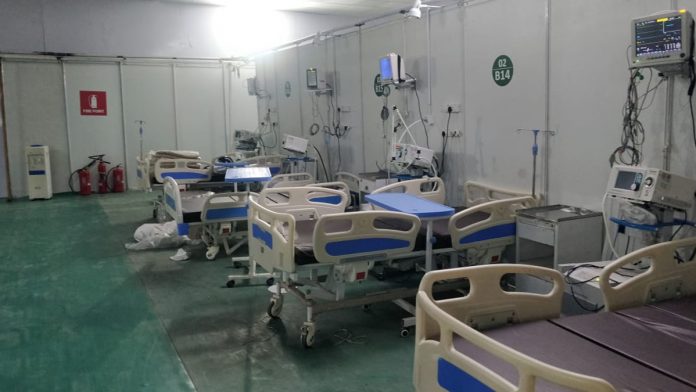
To assist those who require specialised medical care as a result of Covid-19, the DRDO has set up makeshift hospitals with negative pressure tents. The hospital infrastructure specifications for ICU beds, oxygen beds, and regular beds were developed in collaboration with the state health authorities.
The primary mission of the Defence Research and Development Organisation (DRDO) is to develop cutting-edge weapons, strategic missiles, and ballistic missile submarines. However, the raging pandemic in India has forced the organisation to shift its focus from missile testing to saving the lives of Covid-affected Indians.
To assist those who require specialised medical care as a result of Covid-19, the organisation has set up makeshift hospitals with negative pressure tents. The hospital infrastructure specifications for ICU beds, oxygen beds, and regular beds were developed in collaboration with the state health authorities.
The DRDO stated that the equipment for Covid-19 care is provided in accordance with specified standards. The equipment is maintained and upheld around the clock at a time when the spread of Covid-19 has resulted in lockdown-like conditions in several states, according to the statement.
The DRDO has established nine hospitals for Covid-19 in cities such as Delhi, Ahmedabad, Lucknow, Varanasi, Gandhi Nagar, Haldwani, Rishikesh, Jammu, and Srinagar. The Dhanvantri Covid Care Hospital in Gandhi Nagar is the largest, with 700 oxygen beds and 200 ICU beds. Sardar Patel Covid Care Centre in Delhi has 500 ICU beds.
The DRDO has also ordered that oxygen generation plants be installed in various hospitals across the country. These oxygen plants, according to the organisation, can produce up to 1,000 litres of oxygen per minute, which can serve up to 190 patients. These plants have the capacity to charge 195 cylinders per day.
The first two oxygen plants arrived in Delhi on May 6 and were turned on at AIIMS and Ram Manohar Lohia (RML) hospitals in the city, according to the research organisation. The next three plants will be installed at Lady Hardinge Medical College, Safdarjung Hospital, and AIIMS in Jhajjar when they arrive in Delhi.
After successful phase 3 trials, the Drugs Controller General of India (DCGI) approved the drug for emergency use as adjunct therapy in moderate to severe Covid-19 patients on May 1. The drug comes in a powder form in a sachet that must be dissolved in water before being taken orally.



